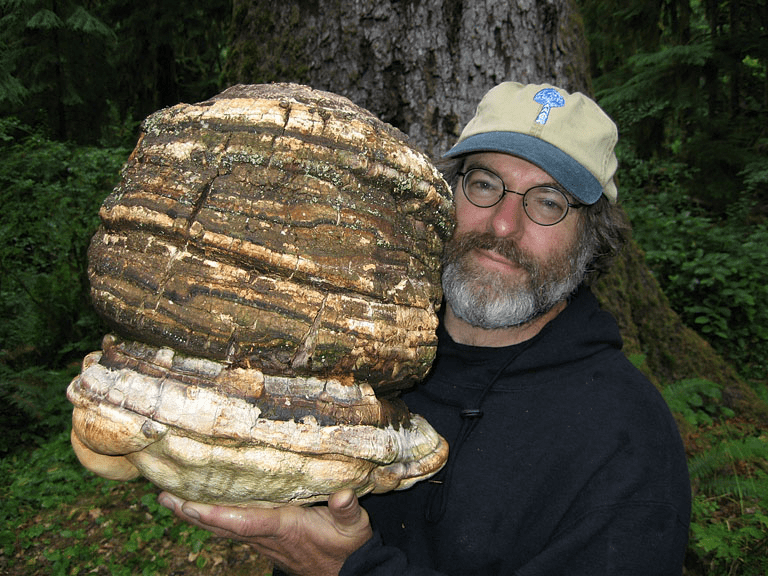
**Understanding Paul Stamets: The Mycologist Who Changed Our Perspective on Fungi**
When we think of groundbreaking figures in the realm of science, names like Albert Einstein or Marie Curie often come to mind. However, one individual who has carved a niche for himself within the biodiversity and environmental conversation is Paul Stamets, an extraordinary mycologist whose work with fungi has had profound implications on health, ecology, and even sustainable agriculture. This article delves into the life, contributions, and philosophy of Paul Stamets, shedding light on why he is considered a pioneer in the field of mycology.
### Who is Paul Stamets?
Born on July 17, 1955, Paul Stamets grew up in a small town near the forests of Ohio, where his early exposure to nature fostered a deep fascination with the natural world. His formal education began at The Evergreen State College in Washington, where he studied biology and environmental science. It was during this period that he developed a keen interest in mushrooms and, more importantly, their vast potential beyond just culinary uses.
Stamets’ journey into mycology was not just a passing interest; it evolved into a lifelong dedication to studying fungi’s ecological roles and medicinal properties. He founded Fungi Perfecti, a company specializing in mushroom cultivation and products, which has played a key role in bringing mushroom-based supplements and cultivation techniques to the mainstream.
### The Fascinating World of Fungi
Fungi are often overlooked, yet they form an integral part of our ecosystem. They assist in nutrient cycling, play a critical role in soil health, and are essential for plant growth. Paul Stamets has devoted his life to uncovering these hidden benefits, advocating for the importance of fungi in combating environmental challenges.
One of his most notable contributions is the concept of “mycoremediation” – using fungi to break down pollutants in the environment. For instance, certain mushrooms can absorb heavy metals and other toxins from contaminated soil, effectively cleaning up ecosystems while also creating a sustainable resource. This insight has opened doors to innovative approaches in environmental restoration and conservation.
### Health Benefits of Mushrooms
Beyond their environmental impact, Stamets has significantly contributed to the understanding of mushrooms as powerful agents for human health. Through extensive research, he has shown that various fungi possess medicinal properties that can enhance immune function, reduce inflammation, and even exhibit anti-cancer properties.
For example, reishi mushrooms are celebrated for their immune-boosting effects, while lion’s mane mushrooms are known for promoting cognitive function and potentially aiding in neuroprotection. Stamets stresses that these mushrooms are not just culinary delights; they are potent health-enhancing allies.
In his widely-circulated TED talks and bestselling books like “Mycelium Running” and “Fantastic Fungi,” Stamets shares his extensive knowledge, making complex scientific concepts accessible to everyday readers. His passion shines through as he encourages people to explore the world of fungi, not only for health benefits but also for the remarkable connections they create within ecosystems.
### Paul Stamets’ Philosophy and Future Directions
What sets Paul Stamets apart is not just his scientific acumen but also his philosophical approach to nature. He champions the idea of viewing fungi as teachers, emphasizing that they navigate problems in ways that we can learn from. In a world increasingly fraught with ecological crises, Stamets urges for a shift in perspective — from exploitation to reverence for nature.
One of his compelling ideas is the concept of the “mycelial network,” a metaphor for interconnectedness. Just as mycelium interlinks plants and trees through root systems, facilitating communication and nutrient exchange, Stamets proposes that humans too must cultivate a sense of connection — with each other and with our environment. This philosophy resonates deeply in today’s societal context, encouraging collaboration over competition.
Looking towards the future, Stamets remains optimistic. His ongoing research continues to explore novel uses for fungi in areas such as climate change mitigation and sustainable agriculture. By employing mushrooms in regenerative farming practices, he hopes to inspire a revolution in food production, promoting ecological balance while feeding a growing population.
### Conclusion: Embracing the Fungi Revolution
Paul Stamets is undeniably a transformative figure in the realm of mycology and environmental awareness. His pioneering work has opened our eyes to the multifaceted benefits of fungi, reshaping how we perceive these organisms. From medicinal applications to ecological restoration, Stamets’ contributions are vast and varied, affirming his position as a leading authority in the field.
As we move forward, it’s crucial to adopt Stamets’ holistic approach—recognizing that the well-being of our planet and ourselves is intertwined. Whether you’re a seasoned mycologist or someone simply curious about mushrooms, embracing the fungi revolution may lead to breakthroughs that could benefit generations to come. In the words of Stamets himself, “A single mushroom can change everything.” As we delve deeper into the mysteries of fungi, we might just find the solutions to some of our most pressing global issues.
So, let’s take a cue from Paul Stamets and explore the extraordinary world of fungi—who knows what treasures await us beneath the forest floor?














